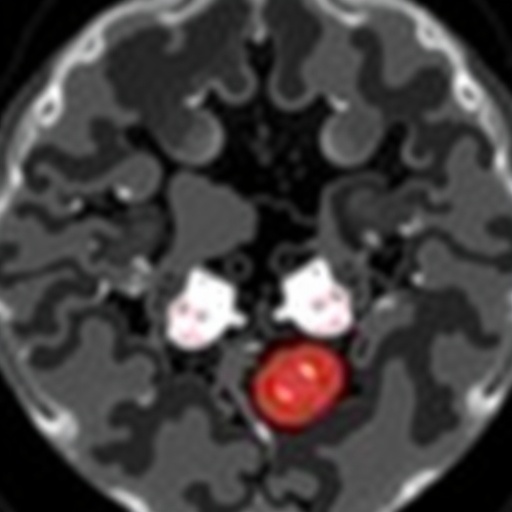In a groundbreaking advancement for metastatic melanoma treatment, researchers have unveiled a promising new combination therapy that significantly alters the tumor microenvironment and curtails the spread of cancer. The innovative approach, involving the herbal compound SH003 and the established chemotherapeutic agent paclitaxel, heralds a new chapter in oncological therapeutics by targeting the complexities of melanoma metastasis through a dual mechanism. This breakthrough study, recently published in Medical Oncology, highlights the synergistic potential of integrating natural compounds with conventional chemotherapy to potentiate treatment efficacy and improve patient outcomes in one of the deadliest skin cancers.
Metastatic melanoma remains a formidable clinical challenge due to its aggressive nature and propensity for rapid dissemination to distant organs. Traditional therapies, though somewhat effective, often fall short, particularly because of the tumor’s dynamic microenvironment, which fosters resistance and facilitates metastasis. The investigative team led by Lee and colleagues navigated this clinical conundrum by focusing on the tumor microenvironment—a complex ecosystem of cancer cells, stromal components, immune cells, and extracellular matrix factors—that plays a pivotal role in tumor progression and therapeutic resistance.
The study demonstrates that SH003, a herbal compound derived from well-known medicinal plants, when used in conjunction with paclitaxel, exerts a multifaceted influence on the tumor microenvironment. SH003’s bioactive phytochemicals modulate inflammatory pathways and promote immune cell infiltration, thereby sensitizing melanoma cells to paclitaxel’s cytotoxic effects. The combination therapy not only enhances tumor cell apoptosis but also disrupts the intricate stromal interactions that typically shield metastatic cells from chemotherapy attack.
Mechanistically, SH003 appears to attenuate several key signaling cascades involved in melanoma metastasis, including the nuclear factor-kappa B (NF-κB) pathway and the epithelial-to-mesenchymal transition (EMT) process. These pathways contribute significantly to tumor invasiveness and drug resistance. By inhibiting these molecular routes, SH003 reduces the migratory and invasive capabilities of melanoma cells, facilitating more effective eradication by paclitaxel. This dual targeting approach thus addresses both the tumor cells and their microenvironment, which conventional therapies seldom achieve in isolation.
The research team employed extensive in vitro and in vivo models to validate their findings. In cultured melanoma cells, the SH003-paclitaxel combination markedly decreased cell viability and triggered pronounced apoptosis compared to monotherapy controls. Animal models mirrored these results, with treated cohorts exhibiting a significant reduction in metastatic burden and enhanced overall survival rates. These preclinical results underscore the therapeutic relevance of combining an herbal agent with conventional chemotherapy to combat metastatic melanoma’s complexity.
Importantly, beyond its antitumor effects, the combination therapy exhibited a favorable safety profile in preclinical assessments. SH003’s natural origin and relatively low toxicity appear to mitigate some of the adverse effects typically associated with paclitaxel, such as neuropathy and myelosuppression. This finding opens avenues for improving patient quality of life during chemotherapy by potentially lowering dosage requirements or offsetting side effects through adjunctive natural compounds.
The clinical implications of this study are profound. As metastatic melanoma remains notoriously difficult to treat, with limited options for long-term remission, integrating SH003 into standard therapeutic regimens could revolutionize treatment paradigms. This research advocates for a paradigm shift toward multi-targeted strategies that simultaneously dismantle tumor cell resilience and reprogram the microenvironment, enhancing chemotherapy’s lethality.
Moreover, the study enriches the burgeoning field of pharmacognosy and ethnomedicine by scientifically validating the efficacy of herbal formulations in modern cancer treatment landscapes. The precise identification and characterization of SH003’s active components lend credibility and encourage further exploration of plant-derived compounds as viable anticancer agents. This could stimulate more integrative research into combinatorial therapies that harness the power of nature alongside synthetic drugs.
Future directions for this research are expansive and critical. Clinical trials assessing the safety, dosage optimization, and therapeutic efficacy of the SH003-paclitaxel cocktail in human patients will be pivotal. Additionally, elucidating the molecular underpinnings with granular detail—such as the specific phytochemicals responsible and their molecular targets—could inform the development of next-generation analogs with enhanced potency and selectivity.
This innovative approach also raises intriguing questions about the adaptability of tumor microenvironments to combinatorial therapies. Understanding how SH003 influences immune cell subsets, stromal-cell crosstalk, and extracellular matrix remodeling could provide deeper insight into overcoming microenvironment-mediated drug resistance mechanisms. The prospect of coupling immunotherapy with SH003-paclitaxel combinations might further amplify anticancer effects and avoid relapse.
Overall, this study exemplifies a sophisticated integration of traditional medicine and contemporary oncology, underscoring the necessity of rethinking cancer treatment models to address the multifactorial nature of metastatic progression. By successfully altering the tumor niche and simultaneously intensifying chemotherapeutic efficacy, the SH003 and paclitaxel combination offers renewed hope for patients battling advanced melanoma and could set a precedent for treating other metastatic malignancies.
In essence, the therapeutic alliance formed between SH003’s natural compounds and paclitaxel’s chemotherapeutic action is a compelling demonstration of how blending modalities can lead to superior clinical outcomes. It not only advances our understanding of melanoma biology but also inspires optimism for more effective, less toxic cancer interventions. As research continues to unravel the therapeutic potential of such combinations, the frontier of metastatic melanoma treatment stands on the cusp of a transformative leap forward.
Subject of Research: Combination therapy involving SH003 and paclitaxel to modulate tumor microenvironment and inhibit metastasis in metastatic melanoma
Article Title: Combination of SH003 and paclitaxel modulates tumor microenvironment and inhibits metastasis of metastatic melanoma
Article References:
Lee, SE., Kim, MW., Sim, YB. et al. Combination of SH003 and paclitaxel modulates tumor microenvironment and inhibits metastasis of metastatic melanoma. Med Oncol 43, 2 (2026). https://doi.org/10.1007/s12032-025-03108-2
Image Credits: AI Generated




